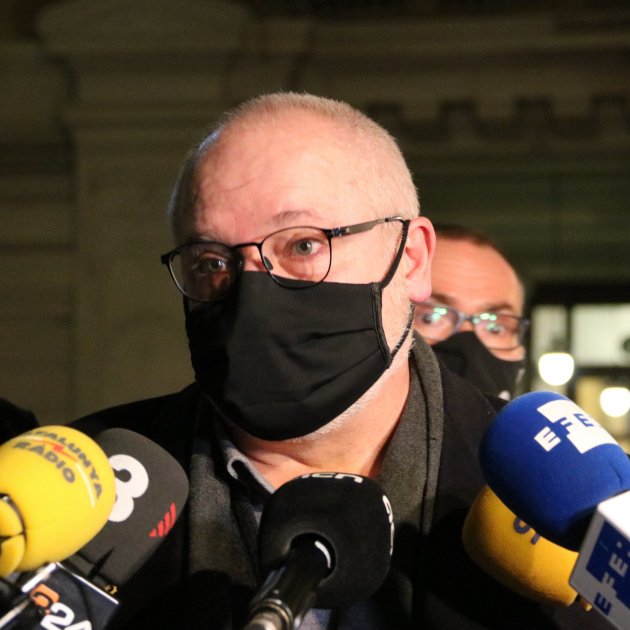Why did the Belgian prosecutor not go to the final appeal stage when the Brussels Court of Appeal rejected the European Arrest Warrant (EAW) he was seeking - on behalf of Spanish justice - for exiled Catalan politician Lluís Puig? It was because the Brussels court had concluded that the defendant's fundamental rights were at risk of being violated by the extradition - including the right to effective judicial protection and presumption of innocence. And the nature of this conclusion activated jurisprudence which stopped the process in its tracks. This is what the Belgian prosecution service explained directly to Spanish Supreme Court investigating judge Pablo Llarena, in a letter to which ElNacional.cat has had access.
As the Attorney General of the Belgian Court of Appeal explained to judge Llarena, it is "the permanent jurisprudence of the Belgian Court of Cassation" that the ruling of the judge who knows the substance of the case is "sovereign and inviolable" in cases where there is a risk of violation of fundamental rights. Specifically, the prosecutor in Puig's case cited articles 47 and 48 of the Charter of Fundamental Rights of the European Union, referring to the right to effective judicial protection and an impartial judge, and the right to the presumption of innocence.
Unviable
In the case of the judge's decision to refuse the actioning of the EAW, according to the prosecutor, it would not be viable either from a technical or legal point of view to dispute the ruling of the Court of Appeal, since a Cassation appeal would not be admitted against the "sovereign" ruling of the judge.
All this led the Belgian prosecutor not to file an appeal after examining the sentence, and this was communicated to the Spanish judge through a letter on behalf of the Attorney General, dated January 22nd.
Spanish Supreme Court, not competent
The ruling of the Brussels Court of Appeal on January 7th, which rejected the European warrant for the extradition of Lluís Puig to Spain, accepted several essential parts of the arguments of the Catalan political prisoners and exiles. For one, that the Supreme Court is not the court which has competence to try their case.
Belgian justice also considered "valid" the complaint made by the UN Working Group on Arbitrary Detention in relation to the violation of the presumption of innocence of three of the leaders of the independence process, Jordi Cuixart, Jordi Sànchez and Oriol Junqueras. In the opinion of the Brussels Court of Appeal, a Working Group set up within the UN meets objective and reliable information criteria that make it possible to determine a "serious, real, concrete and individual risk of violation of fundamental rights".
In the case of Puig, the court concluded that "the extremely serious risk of violating the presumption of innocence must be taken into account." "The widely documented conclusions of the aforementioned Working Group on Arbitrary Detention regarding the fate of the other three Catalan politicians in relation to statements about the defendants made by senior officials and authorities before the sentences were issued, also applies, among other things, due to the alleged similarity of the crimes included in the indictment, in the case of Lluís Puig", argued the Brussels court ruling.
Because of all of this, the Appeal Court refused to execute the arrest warrant issued by Llarena. And a day later, the prosecution announced that it would not appeal the decision.
